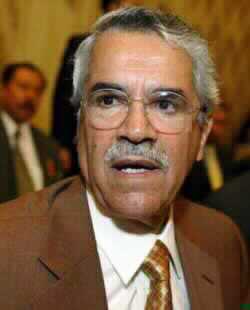Saudi Soothes Oil Consuming Nations' Fears
21/09/2002| IslamWeb
 HIGHLIGHTS: OPEC Holds Current Oil Curbs Despite a Price Near dlrs 30 a Barrel for Crude||Non-OPEC Oil Producers Wouldn't Fundamentally Change World's Energy Landscape||Emerging Substantial New Reserves From Central Asia Further Consolidate Petroleum's Position a Free Energy Source|| STORY: The world's biggest oil exporter Saudi Arabia on Saturday moved to soothe consuming nations' fears of supply disruption in the event of Middle East conflict and set out a robust defense of its role as a reliable source of crude.
HIGHLIGHTS: OPEC Holds Current Oil Curbs Despite a Price Near dlrs 30 a Barrel for Crude||Non-OPEC Oil Producers Wouldn't Fundamentally Change World's Energy Landscape||Emerging Substantial New Reserves From Central Asia Further Consolidate Petroleum's Position a Free Energy Source|| STORY: The world's biggest oil exporter Saudi Arabia on Saturday moved to soothe consuming nations' fears of supply disruption in the event of Middle East conflict and set out a robust defense of its role as a reliable source of crude.
"I can't think of any producing nation that has gone to the extent of the kingdom in servicing its dedicated customers and shoring up any weaknesses in the global oil market," Saudi Arabian Oil Minister Ali al-Naimi said.
"We certainly don't aim to shoulder all the efforts in this regard but we do have a significant track record," Naimi told the opening session of the International Energy Forum of energy producing and consumings nations.
Representing OPEC powerhouse Saudi Arabia, Naimi had attended Thursday's OPEC meeting in Osaka.
The Organization of the Petroleum Exporting Countries had decided to hold its current oil curbs in place, keeping an official production limit of 21.7 million barrels per day, the lowest in 10 years, despite a price near dlrs 30 a barrel for crude. That price, if sustained, is considered by Western governments as the pain threshold for fragile economic recovery.
"Saudi Arabia is committed to maintaining a stable world oil market, free of destructive price swings yet responsive to changing conditions," Naimi said.
"To that end we will continue our longstanding policy of keeping excess production capacity on standby," he added.
Saudi Arabia as the holder of the world's largest oil reserves was able to quickly tap into its mothballed fields in the case of a world oil supply emergency.
"We have invested billions of dollars to build production capacity and to construct diverse export routes," he told the delegates from some 60 nations. "We continue to keep some 30 percent of our production capacity un-utilised to be ready in times supply interruptions.
"In addition to over 10 million barrels per day export facilities in the eastern province ports we have five million barrels per day of export capacity from Red Sea ports to contribute to oil supply security," he said.
Saudi Arabia produces around 7.7 million barrels per day.
NON-OPEC PRODUCERS WOULD NOT FUNDAMENTALLY ALTER WORLD'S ENERGY LANDSCAPE
Naimi considered the growing role of oil producers outside of OPEC, particularly Russia and the Caspian states, cultivated by the United States, the world's biggest oil consumer, in a drive to diversify its supply base away from the turbulent Middle East.
"They currently supplement, not supercede, existing world oil supplies and are not fundamentally altering the world's energy landscape," Naimi said.
With OPEC producers sitting on two thirds of world oil reserves "the emergence of substantial new reserves from Central Asia is not seen as a threat but a further hope that future world economic health can depend on petroleum as a free energy source."
Saudi Arabia had always consulted with produces outside of OPEC, Naimi said, "not paying attention to those who are trying to create a wedge between us and other important oil and gas producers."
"That any single entity...can control the price of oil is absolutely erroneous," the minister said.
PHOTO CAPTION
Saudi Arabia's Oil Minister Ali al-Naimi talks to reporters at the start of the Conference of the Organization of the Petroleum Exporting Countries, in Osaka, Japan, September 19, 2002. OPEC on Thursday agreed to maintain severe restraints on oil production for the fourth quarter to keep crude prices riding high. REUTERS/Toshiyuki Aizawa
- Sep 19 7:42 AM ET
www.islamweb.net
